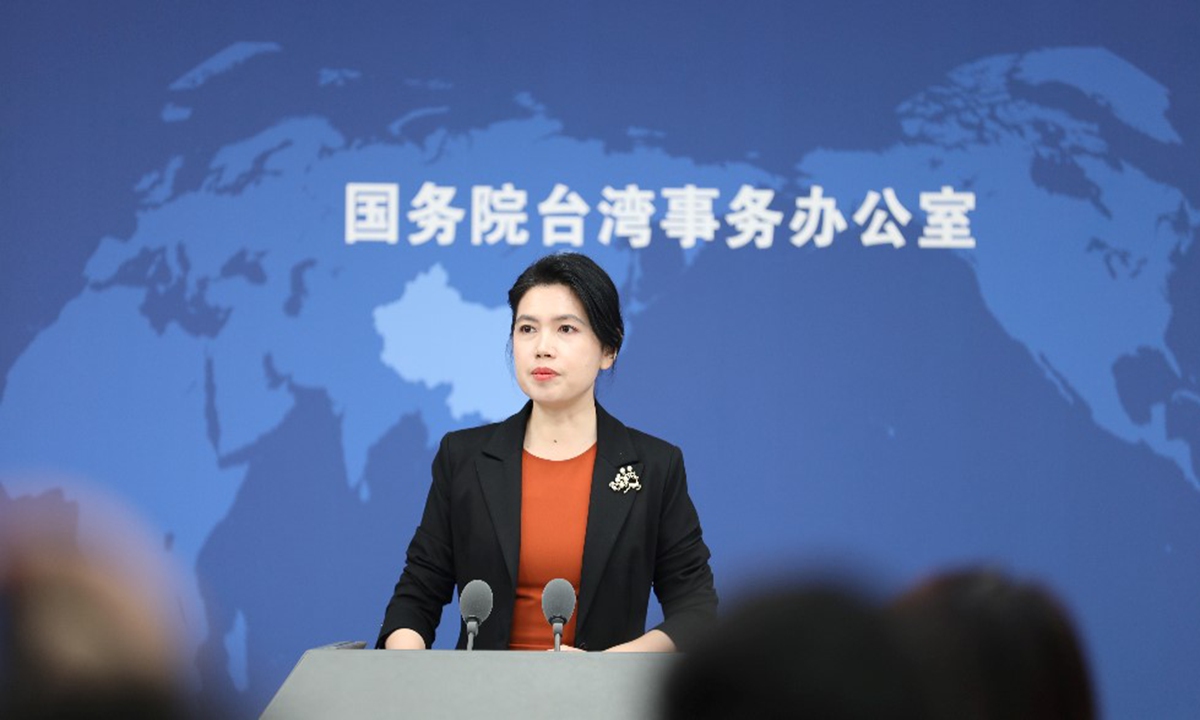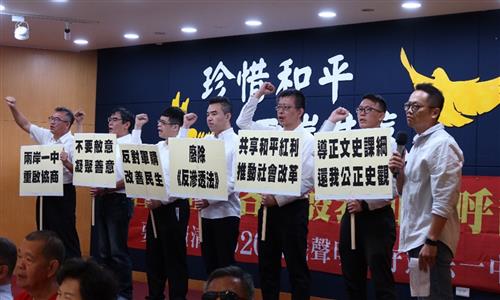Mainland authorities to pursue diehard Taiwan separatists to the end: State Council Taiwan Affairs Office

Zhu Fenglian, spokesperson for the Taiwan Affairs Office of the State Council (Photo: Taiwan Affairs Office of the State Council)
The guidelines on imposing criminal punishment on diehard "Taiwan independence" separatists for conducting or inciting secession target a very small number of diehards who have engaged in particularly egregious pro-independence rhetoric and activities. The national law enforcement and judicial authorities will handle cases strictly in accordance with the law, punish crimes, and resolutely safeguard national sovereignty, unity, and territorial integrity, a State Council Taiwan Affairs Office spokesperson said on Wednesday.
Chinese authorities on Friday issued a set of guidelines on imposing criminal punishments on diehard "Taiwan independence" separatists for conducting or inciting secession, which allow the death penalty and a trial in absentia in relevant cases and stipulate that those who are found to have colluded with any foreign or overseas institution, organization or individual in committing such crimes should be handed a harsher punishment.
In response to some Democratic Progressive Party legislators advocating for so-called "countermeasures" by Taiwan to the guidelines, Zhu Fenglian, a spokesperson for the office, told a press conference on Wednesday that punishing those diehard "Taiwan independence" separatists in accordance to the law is a necessary measure to genuinely maintain peace and stability across the Taiwan Straits and to effectively safeguard the interests and well-being of residents in the island.
"I advise certain individuals on the island to recognize the situation clearly and to not disregard public opinion or act against the current," Zhu said.
If "Taiwan independence" separatists voluntarily abandon their stance and cease activities advocating for "Taiwan independence," and take measures to mitigate or eliminate harmful consequences or prevent further harm, they may be exempt from some or all criminal liability in accordance with relevant laws, Zhu said.
After the mainland's authorities issued the guidelines, Taiwan's mainland affairs council claimed that "the two sides [of the Straits] are not subordinate to each other, and the sanctions are illegal and invalid."
Taiwan is a part of China, which is an indisputable legal fact and a widely recognized consensus in the international community, Zhu said.
The country's lawful punishment of "Taiwan independence" hardliners for crimes of splitting the country and inciting separatism has a solid legal basis and sufficient legal grounds.
"It is a rightful act to defend national sovereignty, unity, and territorial integrity, as well as a just action to protect the common interests of compatriots on both sides of the Straits and the fundamental interests of the Chinese nation," the spokesperson said.
Any "Taiwan independence" hardliner who violates the law, no matter where they are, will be relentlessly pursued and punished according to the law by the country's law enforcement and judicial authorities, Zhu stressed.
As the guidelines accurately identify crimes including a provision stating that using one's authority in fields such as education, culture, history, and news media to alter the one-China principle and reunification also constitutes a crime, some media reported that it can be understood that this provision targets not only public figures but also includes social media influencers, those in broadcast media, historians, cultural or academics.
Zhu noted that the provisions of the guidelines are very rigorous, which target those who "use their authority in fields such as education, culture, history, and news media to massively distort and falsify the fact that Taiwan is a part of China."
National law enforcement and judicial authorities will handle cases strictly in accordance with the law, accurately punish crimes, and firmly safeguard national sovereignty, unity, and territorial integrity, the spokesperson said.
The guidelines do not target or involve the general people in the island, Zhu said. "We always respect, care for, and benefit the people of Taiwan, warmly welcoming and supporting their participation in cross-Straits exchanges and cooperation, and sharing the opportunities of China's modernization," she said.
We hope the people in the island firmly oppose "Taiwan independence" separatist forces and their activities, actively participate in cross-Straits exchanges, and enjoy the benefits of peaceful development of cross-Straits relations.
When asked about whether the mainland would request the relevant country extradite the defendant if he is abroad, Zhu said for "Taiwan independence" diehards who break the law, regardless of their location, the national law enforcement and judicial authorities will pursue them to the end and punish them according to the law.
Global Times

